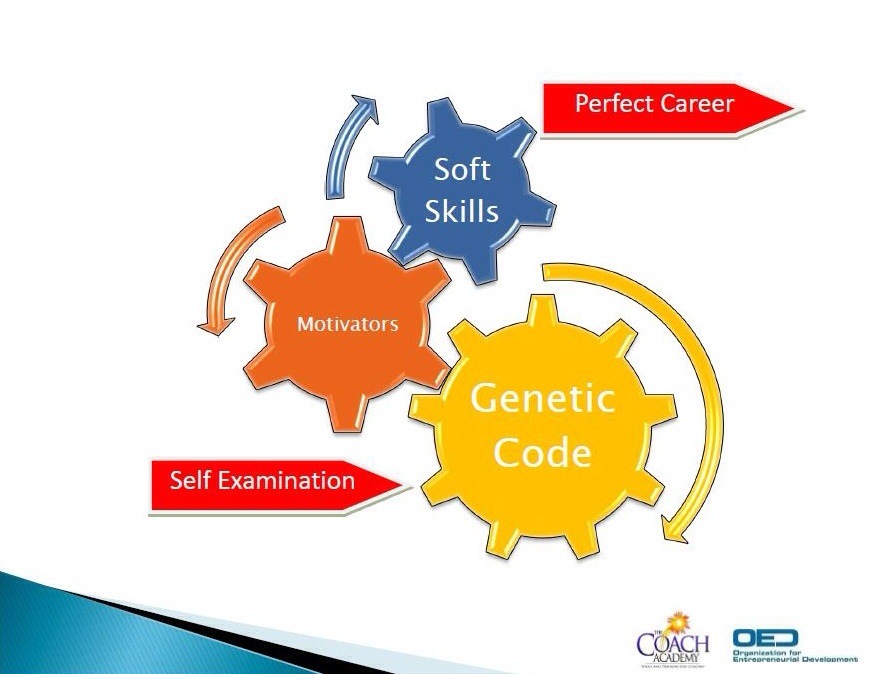Are your players in the wrong positions on the team?
 September 25, 2014
September 25, 2014
 No Comments
No Comments
One the things that seems so intuitive; yet, is commonly seen in working with teams is that we have players in the wrong positions. What seems to be a pretty basic topic tends to show up more frequently than not as I work with leaders and their teams. For some reason, we tend to overlook the fact that people have differing behavioral types as well as differing gifts and talents. Let me share an example.
Several years ago, I received a phone call from client stating, “Chris, I’ve got to have your help. I don’t understand it, however, we’re in a major growth phase and my team is dropping all kinds of balls.” Pretty much on the spot we agreed to terms of the agreement and the next week I was working with his team.
The first thing I typically do with clients is behavioral profiling. DISC is the instrument I utilize, however, there are a multitude of instruments out there that are good. Once we did the profiling with this particular business, I really didn’t have to do much more than hand the summary to the CEO. As he looked at the summary, he said, “oh, I get it, I hired a team of ‘D’s”. “D” in DISC doesn’t stand for “detail-oriented”. In fact, it actually stands for the direct opposite. “D”s are “driven” people who don’t need a lot of details. So, this CEO had no one on the team naturally gifted at focusing on the “details” and “systems” needing to be put in place. In this particular case, some new players needed to be brought onto the team to balance out the natural talent and gifting of the team.
Again, this example likely seems so rudimentary, however, it’s not. Time and time again, I see players in the wrong positions. We hire someone for a sales position because they made a great first impression one-on-one in the interview process, seemed like a go-getter, and had some demonstrated results in the past. Yet, they aren’t “naturally” gifted as a people person. Expect them to generate new business through things like making 100 calls a day, showing up at a social function, or striking up a conversation with someone they don’t know and you’re in trouble.
Or, we have someone who is naturally a “people-pleaser” who is a great “steady-eddy”. Yet, we put them in a fast pace environment that they have to make split second decisions. Talk about an internal conflict they’re having with themselves! Then, they make a mistake, you confront them rather directly on the mistake, and you’ve crushed this “people-pleaser”. All of this is due to the fact you placed them in the wrong position on the team. They aren’t wired to perform well in this type of position.
These examples given center around a simply behavior styles assessment; however, there are many other assessments that go much deeper. I’m not necessarily advocating an arsenal of scientific assessment tools be utilized to understand the inner workings of each member of the team; however, hopefully today’s blog has at least highlighted that you need to give some thought to team members “natural” behavioral styles, talents, and gifts.
Need help? As always, I’d love to help! There is nothing more satisfying than seeing someone discover and start performing in the area their most gifted. Oh, sometimes that might be on another team which is “OK”.
 Blog Home
Blog Home
Popular Posts
- The False Beliefs Around Financial Security: A Christian Entrepreneur’s Perspective 22 views
- What should I “Start, Stop, Continue” doing? 18 views
- Does God speak through yellow birds! 10 views
- One of the Best Christmas Gifts Ever! 6 views
- The Emotional Whirlwind: How To Change Your Reality By Changing Your Flow of Thought 5 views
- Is Lencioni’s The Five Dysfunctions of a Team outdated? 5 views
- If at first you don’t succeed, you’re in good company. 4 views
- Coaching versus Counseling 4 views
- “Where there is no vision the people will perish!” 3 views
- …hope…trust…wait… 3 views
Categories
- 5 Part Profit Framework (20)
- Books (40)
- Business (196)
- Case Studies (5)
- Faith (134)
- Family (83)
- Farm 360 (5)
- Finances (20)
- Fitness (6)
- Freedom (22)
- Friends (25)
- Fun (5)
- Hearing God's Voice (59)
- Leadership (96)
- Leadership Development (67)
- Marketplace Ministry (29)
- Mentor (37)
- Personal (186)
- Speaking (7)
- Strategic Planning (59)
- Team Alignment (59)
- Teambuilding (57)
- Teens (24)
- Testimonials (11)
- TPCC (32)
- TruthAtWork (57)
- What Matters (6)


Leave a Reply